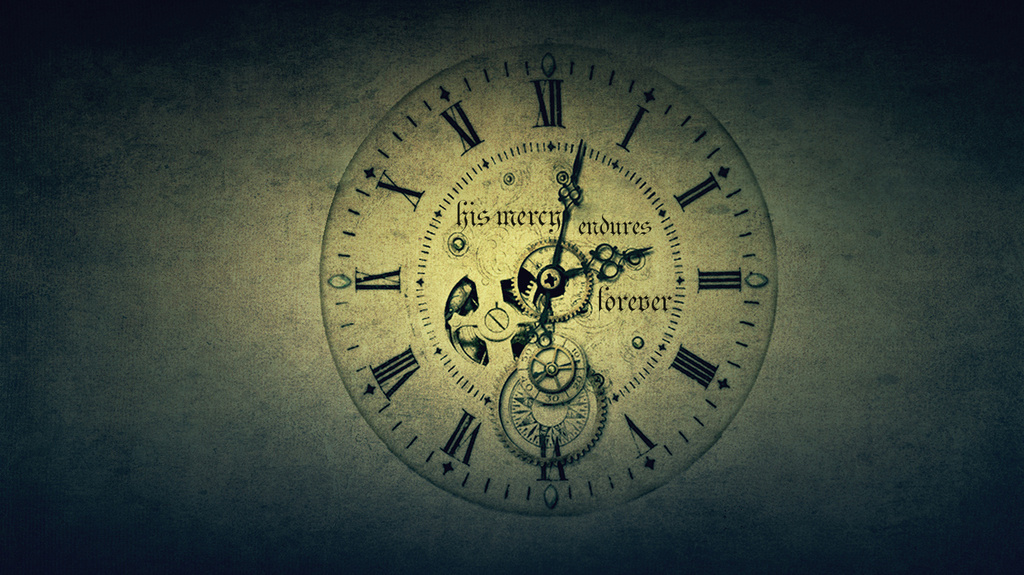
For His Mercy Endureth Forever
One of my favorite psalms, one I used to enjoy reading aloud, is Psalm 136. Every verse ends with the joyful refrain, "For His mercy endureth forever." How long does our mercy endure? How long do we show grace to those who wrong us or offend us?

- R. J. Rushdoony
One of my favorite psalms, one I used to enjoy reading aloud, is Psalm 136. Every verse ends with the joyful refrain, "For His mercy endureth forever." How long does our mercy endure? How long do we show grace to those who wrong us or offend us?
God's wrath is no uncertain matter, nor His law one that He forgets. But God's mercy is an everlasting one and we need to rely on it and to trust in it. Moreover, we must show God's mercy towards those who sin against us.
We tend to overlook God's mercy and we forget how much Christians in the past relied on it. Remember, "Mercy" was often given as a name to girls.
A forgotten theme of Christian piety in earlier years was God's mercy. Few people now feel a need for God's mercy. They come to Him in the confidence of a happy reception, forgetting how much they need grace, and how deeply they stand in the fact of God's mercy. We are never in His favor because of our superior works.
Psalm 136 thus summons us to give continual thanks to God for His mercy. Too often, when we pray, we forget to thank God for His mercy. We fall into the sin of expecting mercy and believing that we deserve it. This is why the reading of Psalm 136 is so wholesome.
Mercy is grace and good gifts to the undeserving. Mercy is inseparable from grace because it means goodness to the undeserving, God's goodness out of sheer grace.
The Bible speaks more often of God's grace and mercy than we do. We want God, as someone observed in the 1930s, as a spare tire, important to have in case of a flat tire, but nothing to think about otherwise. We should instead "give thanks unto the God of heaven: for His mercy endureth forever" (Ps. 136:26).

- R. J. Rushdoony
Rev. R.J. Rushdoony (1916–2001), was a leading theologian, church/state expert, and author of numerous works on the application of Biblical law to society. He started the Chalcedon Foundation in 1965. His Institutes of Biblical Law (1973) began the contemporary theonomy movement which posits the validity of Biblical law as God’s standard of obedience for all. He therefore saw God’s law as the basis of the modern Christian response to the cultural decline, one he attributed to the church’s false view of God’s law being opposed to His grace. This broad Christian response he described as “Christian Reconstruction.” He is credited with igniting the modern Christian school and homeschooling movements in the mid to late 20th century. He also traveled extensively lecturing and serving as an expert witness in numerous court cases regarding religious liberty. Many ministry and educational efforts that continue today, took their philosophical and Biblical roots from his lectures and books.